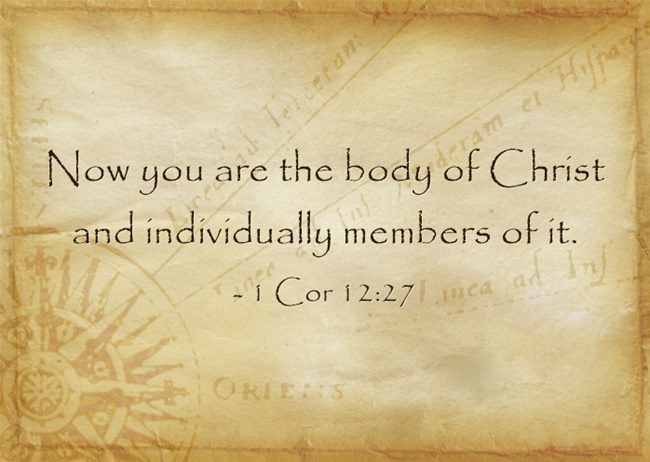Here are 5 things you should look for when trying to find a good church home.
Biblical Teaching
If you are not receiving the whole Word in expository, verse-by-verse preaching and teaching, then you are not getting the whole counsel of God. Topological sermons are fine where you have to use different Bible verses on a certain topic but the way in which the Word of God is written, context is essential for our understanding it. To see the whole context of even one Bible verse, you really should read the entire chapter or possibly even more before or after the chapter. Some even suggest you read the whole book. If you take one text in the middle of a chapter and try to teach it by itself, it’s like walking into a room and trying to understand the context of what people are talking about. Without hearing the previous conversations, the present one would make no sense. That is very similar to the way you must read the Bible. Context is king. Before you consider anything else about this church, what is preached behind the pulpit? Nothing else really matters if the pastor is not upholding the inerrant Word of God as the basis for all truth and as the source of all his sermons.
Church Unity
For the most part, Paul spoke to the church as a whole, corporate Body of Christ when he wrote his letters to the church. He rarely used language that was meant for the individual (Timothy, Titus, and Philemon are exceptions). This is why Paul wrote that the church is “the body of Christ and individually members of it” (1st Cor 12:27) and “Because there is one loaf, we, who are many, are one body, for we all share the one loaf (1st Cor 10:17). It is “Just as a body, though one, has many parts, but all its many parts form one body, so it is with Christ” (1st Cor 12:12). Even “though many [we] form one body, and each member belongs to all the others” (Rom 12:5). Because we are one in Christ Paul wrote, I “urge you to walk in a manner worthy of the calling to which you have been called, with all humility and gentleness, with patience, bearing with one another in love, eager to maintain the unity of the Spirit in the bond of peace. There is one body and one Spirit—just as you were called to the one hope that belongs to your call” (Eph 4:1-4). God’s Spirit should bring unity within the Body and if that is missing, the Spirit might be missing.
Believer’s Fellowship
Every Christian is indwelt by the Holy Spirit and should understand that we once had no fellowship with God. Indeed, we didn’t even have a relationship with Him. It took the effectual calling of God (John 6:44) to show us “The grace of the Lord Jesus Christ and the love of God and the fellowship of the Holy Spirit be with you all” (2nd Cor 13:14). The Apostle John was an eye witness of Jesus’ ministry and teachings and so wrote down these historical accounts “so that you too may have fellowship with us; and indeed our fellowship is with the Father and with his Son Jesus Christ” (1st John 1:3) and “if we walk in the light, as he is in the light, we have fellowship with one another” (1st John 1:7). This was the history of the early church and why they might have grown so rapidly since they “devoted themselves to the apostles’ teaching and the fellowship, to the breaking of bread and the prayers” (Acts 2:42) and as a result, “the Lord added to their number day by day those who were being saved” (Acts 2:47b). If you notice a lot of “meet and greets” and “hugs and handshakes” at the church your visiting, then you might be in a good place.
Growing
We are instructed to “grow in the grace and knowledge of our Lord and Savior Jesus Christ” (2nd Pet 3:18). There is no “Plan B.” Sadly, the author of Hebrews chastised the readers by writing that “by this time you ought to be teachers, you need someone to teach you the elementary truths of God’s word all over again. You need milk, not solid food! Anyone who lives on milk, being still an infant, is not acquainted with the teaching about righteousness” (Heb 12-13). He was basically calling them “babies” but babies that knew better. Churches that are healthy frequently have a discipleship program and/or there is a mentoring process between the members. Paul had similar issues with the lack of growth in the church at Corinth, writing “I gave you milk, not solid food, for you were not yet ready for it. Indeed, you are still not ready” (1st Cor 3:2). The conclusion for the author of Hebrews was to “move beyond the elementary teachings about Christ and be taken forward to maturity” (Heb 6:1a). If there is any desire to be “babes”, then “In regard to evil be infants, but in your thinking be adults” (1st Cor 14:20b).
Unconditional Love
Unconditional love is a love that doesn’t hold grudges. When such a person extends forgiveness, the one who loves unconditionally will release all animosities toward the other person. Just as God forgave us and gave us His unconditional love, we too ought to love the brothers and sisters. The Apostle John writes more about the love of God than any other author in the New Testament (79 times) and second most in the Bible (next to Psalms 168 times). John doesn’t use his own name in his writings but like in the Gospel of John, he refers to himself as “the disciple whom Jesus loved” (John 13:23) so he even describes himself as one who is being loved by Jesus! John heard Jesus say “Greater love has no one than this, that someone lay down his life for his friends” (John 15:13) but He also saw Him die in fulfilling this statement on the cross (John 19:25-27). Love is not only what you feel but even more, it is what you do. Love is a verb and so it’s not just what you say that shows your love, it’s what you do. I’m not suggesting you don’t say “I love you” but only saying “prove it.” Love is displayed in participating action like Jesus dying on the cross. By Jesus dying on the cross for us, while still His enemies (Rom 5:10), “God demonstrates his own love for us in this: While we were still sinners, Christ died for us” (Rom 5:8).
Conclusion
Maybe you can suggest something else. There are certainly more than just these five things to look for in a church. I do believe Bible-teaching, Bible-preaching is essential; church unity showing God’s Spirit is present; church fellowship expressed by devotion to one another; church growth in individuals and not an increase in attendance (although it may cause growth); and an unconditional love displayed by tangible, physical acts of service and giving by the body. These make for a good church home.
Article by Jack Wellman
Jack Wellman is Pastor of the Mulvane Brethren church in Mulvane Kansas. Jack is also the Senior Writer at What Christians Want To Know whose mission is to equip, encourage, and energize Christians and to address questions about the believer’s daily walk with God and the Bible. You can follow Jack on Google Plus or check out his book Teaching Children the Gospel available on Amazon.
















